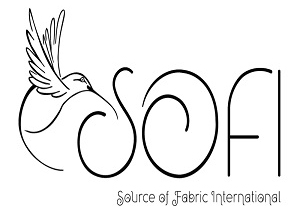In the dynamic world of fashion and textiles, understanding fabric sourcing and working with reliable fabric suppliers are crucial to success. This comprehensive guide aims to provide you with actionable insights and tips to streamline your fabric sourcing process, ensuring you partner with the best suppliers. Whether you are a seasoned designer or a startup, these strategies will help you navigate the complex landscape of fabric sourcing.
Why Fabric Sourcing Matters
Fabric sourcing is the foundation of any textile-based business. It determines the quality, cost, and sustainability of your products. Partnering with the right fabric suppliers can significantly impact your bottom line and brand reputation.
1. Understanding Your Needs
Before diving into fabric sourcing, it’s essential to have a clear understanding of your requirements. Define the types of fabrics you need, their qualities, and their quantities. This will help you target your search and avoid wasting time on unsuitable suppliers.
2. Researching Fabric Suppliers
Start by researching potential fabric suppliers. Look for suppliers with a strong reputation, positive reviews, and a track record of reliability. Websites like SOFI specialize in wholesale fabric sourcing and can be a valuable resource.
3. Evaluating Quality and Consistency
Quality and consistency are non-negotiable when it comes to fabric sourcing. Request samples from multiple suppliers to compare their offerings. Look for consistency in color, texture, and weight across different batches.
4. Building Relationships with Suppliers
Building strong relationships with your fabric suppliers is key to a successful sourcing strategy. Regular communication and mutual trust can lead to better pricing, priority service, and exclusive access to new fabric lines.
5. Negotiating Prices and Terms
Effective negotiation can save your business significant costs. Be clear about your budget and seek to negotiate favorable terms, such as bulk discounts or flexible payment schedules. Remember, a good relationship with your supplier can provide leverage in negotiations.
6. Understanding Lead Times
Lead times can vary significantly among suppliers. Ensure you understand the lead times for different fabrics and plan your production schedule accordingly. Delays in fabric delivery can disrupt your entire supply chain.
7. Considering Sustainability
The textile sector is starting to recognize the importance of sustainability. Look for suppliers that offer eco-friendly fabrics and sustainable sourcing practices. This is good for the environment and might improve the perception of your company.
8. Checking Certifications
Certifications can assure quality and ethical practices. Look for suppliers with certifications such as OEKO-TEX, GOTS, or Fair Trade. These certifications indicate adherence to high standards in fabric production.
9. Diversifying Your Supplier Base
Relying on a single supplier can be risky. Spread out your supplier base to reduce the chance of supply chain interruptions. This also allows you to compare prices and quality across different suppliers.
10. Keeping Up with Trends
The fabric industry is constantly evolving with new trends and innovations. Stay updated with the latest developments to keep your products fresh and competitive. Attend trade shows, subscribe to industry publications, and network with other professionals. Must Read About Exploring the History and Versatility of Cotton Lawn Fabric in Fashion
Conclusion
Navigating the world of fabric sourcing and fabric suppliers can be challenging, but with the right strategies, it becomes manageable and rewarding. By understanding your needs, researching suppliers, and building strong relationships, you can ensure a steady supply of high-quality fabrics for your business. Emphasizing sustainability and staying updated with industry trends will further enhance your sourcing strategy, positioning your brand for long-term success.
For more information and assistance with your fabric sourcing needs, visit SOFI, your trusted partner in wholesale fabric services.


